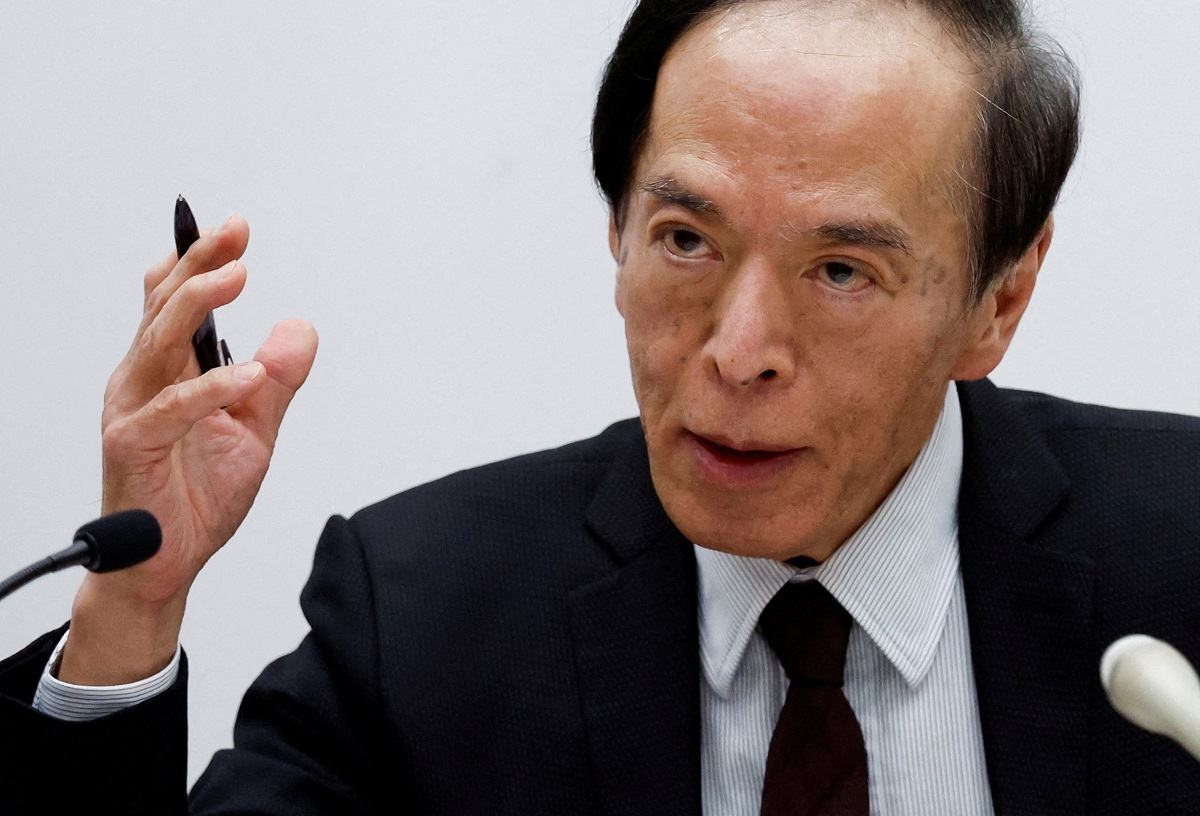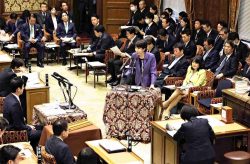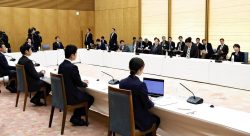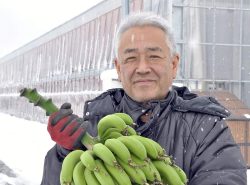
Bank of Japan Governor Kazuo Ueda attends a press conference after their policy meeting at BOJ headquarters in Tokyo, Japan December 19, 2023.
11:39 JST, December 26, 2023
TOKYO (Reuters) – Bank of Japan Governor Kazuo Ueda said on Monday the likelihood of achieving the central bank’s inflation target was “gradually rising” and it would consider changing policy if prospects of sustainably achieving the 2% target increase “sufficiently.”
While companies are becoming more open to raising wages and prices, the key is whether wages will continue rising next year and lead to further increases in service prices, Ueda said.
“If the virtuous cycle between wages and prices intensifies and the likelihood of achieving our price target in a sustainable and stable manner rises sufficiently, we will likely considering changing policy,” Ueda said, offering the clearest sign to date of the chance of ending ultra-easy monetary policy.
Ueda said the BOJ had not decided on a specific timing to change the loosest monetary stance of any major central bank, due to uncertainties over economic and market developments.
“We will carefully examine economic developments as well as firms’ wage- and price-setting behavior, and thereby decide on future monetary policy in an appropriate manner,” he said.
The language differed slightly from Ueda’s usual phrase calling for the need to “patiently” maintain ultra-loose policy for the time being.
The Japanese government bond market shrugged off Ueda’s remarks, with yields falling as the BOJ conducted a regular bond buying operation across the curve.
With inflation exceeding the target for well over a year, many market players expect the BOJ to lift short-term interest rates out of negative territory next year, with some betting on higher rates as early as January.
Ueda said Japan’s prolonged experience of low inflation and stagnant wage growth likely heightened public perceptions that prices and wages would remain stuck around zero.
Changing such perceptions and creating a cycle in which wages and prices rise in tandem would have benefits such as leading to more efficient allocation of labor, he said.
Achieving positive inflation will also push up nominal interest rates and give the central bank room to substantially lower rates when needed to prevent the economy from slipping back to deflation, Ueda said.
He pointed to recent progress, such as a gradual acceleration in service inflation and signs of change in the way companies set prices and pay.
“The likelihood of Japan’s economy getting out of the low-inflation environment and achieving our price target is gradually rising, though the likelihood is still not sufficiently high at this point,” Ueda said.
“Since there are extremely high uncertainties surrounding the economy and prices at home and abroad, it’s necessary to examine how firms’ wage- and price-setting behavior will change,” he added.
Top Articles in News Services
-

Survey Shows False Election Info Perceived as True
-

Hong Kong Ex-Publisher Jimmy Lai’s Sentence Raises International Outcry as China Defends It
-

Japan’s Nikkei Stock Average Touches 58,000 as Yen, Jgbs Rally on Election Fallout (UPDATE 1)
-

Japan’s Nikkei Stock Average Falls as US-Iran Tensions Unsettle Investors (UPDATE 1)
-

Japan’s Nikkei Stock Average Rises on Tech Rally and Takaichi’s Spending Hopes (UPDATE 1)
JN ACCESS RANKING
-

Producer Behind Pop Group XG Arrested for Cocaine Possession
-

Japan PM Takaichi’s Cabinet Resigns en Masse
-

Man Infected with Measles Reportedly Dined at Restaurant in Tokyo Station
-

Israeli Ambassador to Japan Speaks about Japan’s Role in the Reconstruction of Gaza
-

Videos Plagiarized, Reposted with False Subtitles Claiming ‘Ryukyu Belongs to China’; Anti-China False Information Also Posted in Japan



























